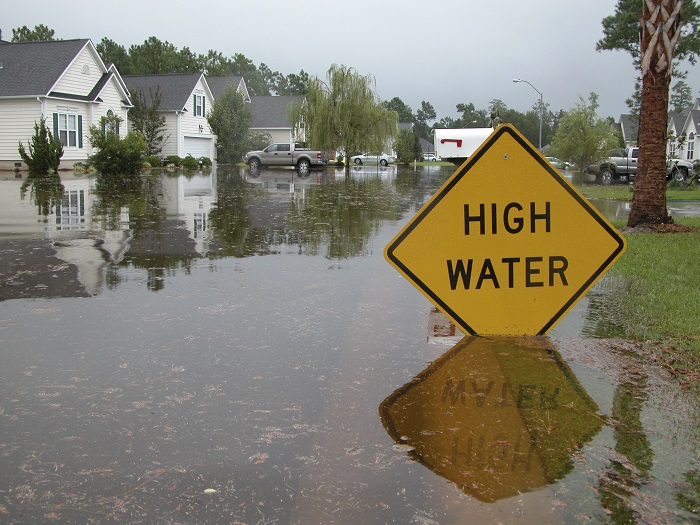
A small leak suddenly becomes a ruptured pipe. Heavy rains cause floodwater to enter the house. In either case, the damage might prove costly and hard to repair. You will likely want your homeowners insurance to help. However, an issue you might face is whether you have coverage on your home policy. How do you know if you can claim water damage on your insurance?
Often, floods do not have coverage under homeowners insurance. You often must turn, instead, to flood insurance. If you live in an area prone to flooding, this is valuable protection to carry.
When Homeowners Insurance Covers Flooding
Your homeowners insurance will cover some instances of unavoidable, unpreventable water damage. If plumbing ruptures, flooding your bathroom and seeping into other spaces, you might be able to claim it. You likely couldn't have prevented a sudden burst pipe. Your property and possessions coverage might help repair the home and replace damaged belongings. Still, there are limits.
When Home Insurance Excludes Flooding
No home insurance policy will cover every flood. For example, if you could have prevented a burst pipe, you might receive no help from insurance. Failing to repair a leaky pipe, then experiencing a rupture, might fall into this category.
Also, standard home insurance usually does not cover weather-related floods, such as those from hurricanes, tropical storms, heavy rains, river swells, etc. Even if you live in an area at risk for floods, you will likely not find help on your homeowners policy. To get protection, you'll likely need to invest in flood insurance. It's a policy that can prove helpful in case one strikes your house.
Understanding Flood Insurance
Properties have different levels of flood risk. Therefore, the need of property owners for flood coverage varies. That's one of many reasons standard home coverage doesn't usually insure floods.
Those who face significant flood risks must turn to flood insurance for their coverage needs. With coverage, you'll have protection for many of the same items you insure under your home coverage. For example, a policy can help repair the structure. It might also pay to help you replace the belongings on your property.
Most policies come supported by the National Flood Insurance Program (NFIP), which is administered by the Federal Emergency Management Agency (FEMA). This government program supports the significant cost risk insurers often assume by covering floods. It requires certain homeowners to buy coverage. Typically, those with a mortgage on their home. Parties who have a coverage rule are often those who live in areas deemed high-risk flood zones by the program.
Recently, several private flood insurance markets have opened up to us and become a popular alternative to NFIP flood programs. Most are backed by Lloyds of London and other reinsurers. Some insureds have saved hundreds and even thousands of dollars annually by obtaining coverage through a private flood market. Please contact us to go over the differences between private flood and NFIP flood insurance.
Regardless of whether you have a flood insurance requirement, it can't hurt to look into coverage. Ask us here at Anderson Insurance Consultants about the perks of this protection. Then, take a close look at your home’s individual flood risks. If you see that you could experience a flood, it might be a good idea to get coverage.
Contact Us